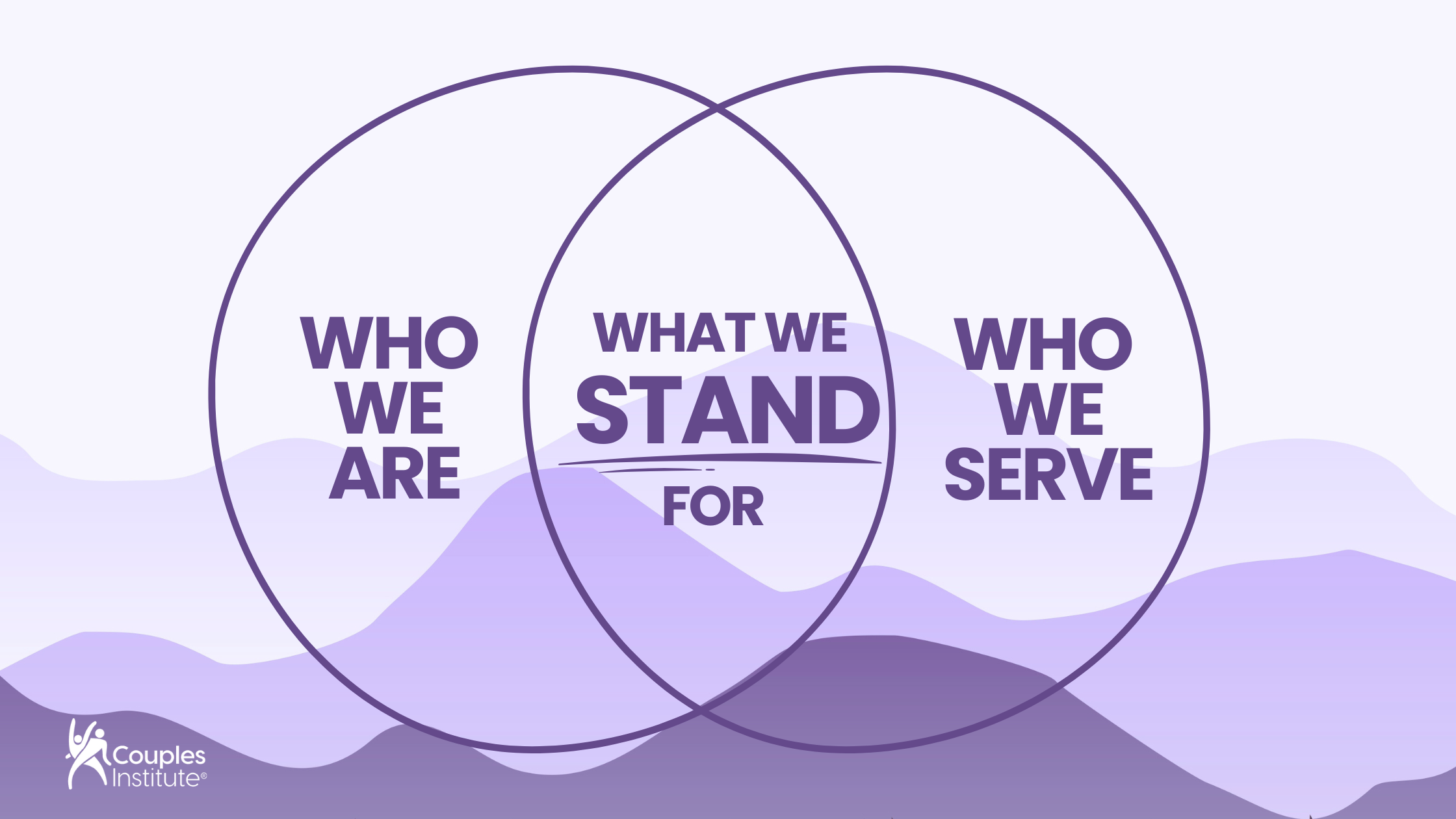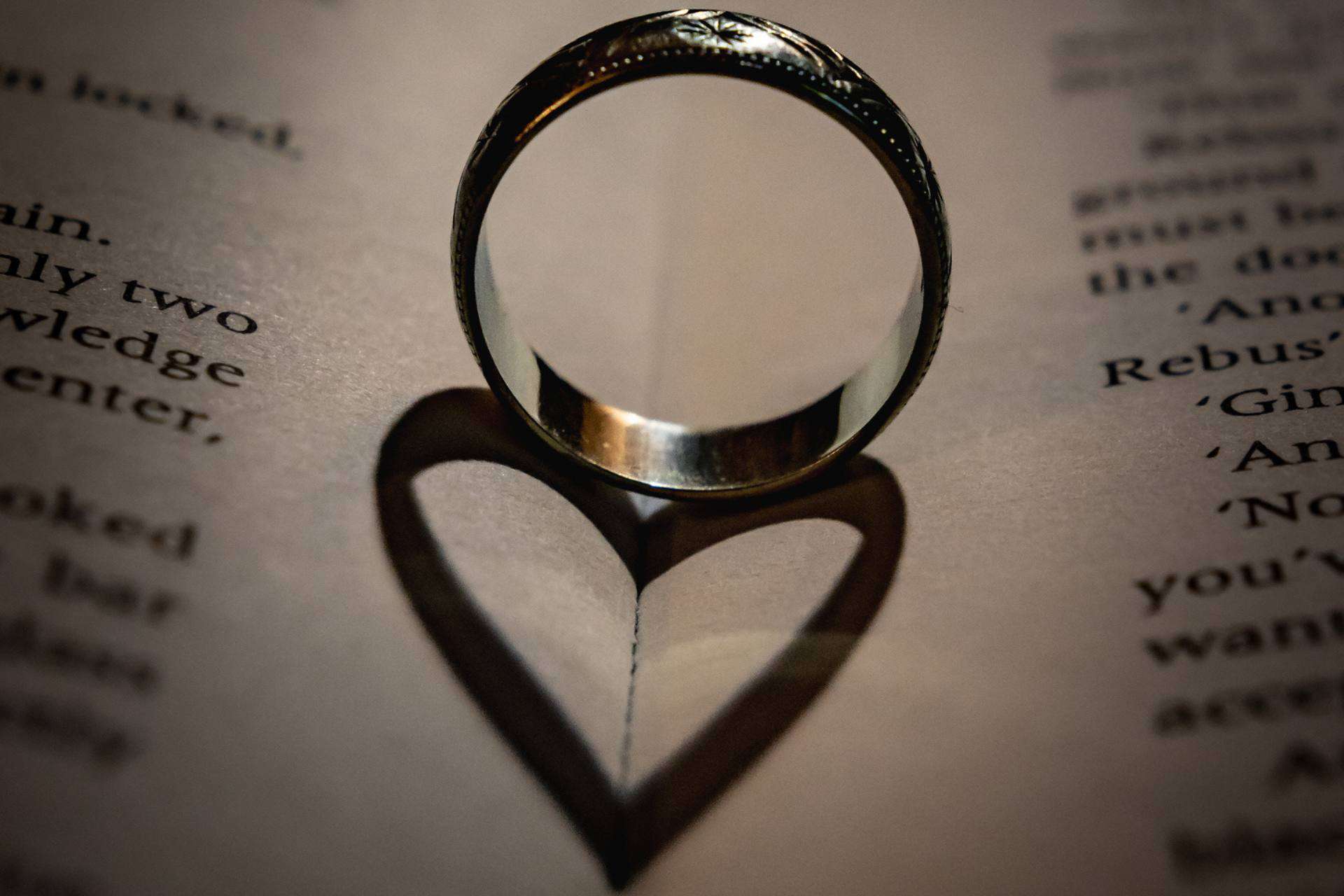
What We Stand For at The Couples Institute® If you read one thing from us this year, let this be it
As we look into the New Year, I want to share with you very clearly what Couples Institute stands for, now and always. Most of
A marriage is the most rewarding – and the most challenging – relationship of your life.
Don't let this alarm you, but no matter how old you are, how smart you are, or how hip you are, your relationship to your spouse will parallel your relationship to your parents during your childhood. Your marriage will mirror many of the stages you went through beginning with infancy, when you believed that you and your mom were in fact the same person; to the tantrums, withdrawal and defiance you used as a toddler to separate yourself from her. Finally, you discovered your own identity was separate and found that you were able to love your mom and be yourself at the same time.
To love your spouse and still be yourself. that's the goal for your marriage. But love can be threatened by changes in behavior and feelings that occur naturally as a marriage progresses. Many partners react with fear and anger, rather than understanding that these changes are inevitable, and necessary.
“For Better or For Worse?” It's up to you. Your reactions to the stages of love are the key to success or failure in your marriage.
The Stages of Romantic Love
Stage 1: You and I are one — and we are perfect for each other.
Conflict rating: 0
Closeness Rating: 5
You understand pretty well that this stage is temporary-when you are looking objectively at other couples. But when you're madly in love you have a hard time imagining any problems ahead in your own relationship. You see each other as perfect and wonderful, and you refuse each other nothing. This stage does serve a purpose. It permits two strangers to build the foundation for trust and caring. Some couples become trapped in this stage. They are never apart, and neither person can do anything without the other. They both become stunted as individuals, and the relationship stagnates. It is also possible for one member of the couple to stay at this stage while the other moves on, causing pain and fear for both.
Stage 2: We are not alike, and you have some really bad habits.
Conflict rating: 3 – 4
Closeness rating: 3 – 4
You are beginning to notice the sometimes irritating ways in which you are different from each other.everything from leaving the cap off the toothpaste to more earthshaking issues like attitudes toward money, family and religion. As you realize that your beloved is not perfect, you are aware that your feelings are changing. You may begin to feel stifled. You are still in love, but all of your needs can't be met by this one person. You can't keep adapting to doing what your partner prefers all the time. You need to pursue your own desires, your own friendships, and to discover more about your own core values separate from your spouse.
Stage 3: My wants come first.
Conflict rating: 2 – 3
Closeness rating: 1 – 2
You want to be a whole person. Your professional accomplishments, your friendships, or hobbies are moved to the front burner. Your unselfish brand of caring, where nothing was too much trouble if it made your partner happy, seems to have vanished. In fact, some of your behavior may seem downright self-centered. This can be a time of major conflict between you, especially if your spouse is not keeping pace with you as you move through the stages. But you have a genuine desire right now to fulfill your own destiny in the world and to establish your own identity separate from being a spouse.
Stage 4: Remember how we used to cuddle?
Conflict rating: 2
Closeness rating: 3 – 4
You have established your independence, and you miss the days when being a couple came first. You will move back and forth between closeness and independence. You begin to realize that both of you can move out into the world, and then come back for love and support. You try to improve communication. You discover that the relationship is still there for you without swallowing you up.
Stage 5: Wow, we made it!
Conflict rating: 1
Closeness rating: 4 – 5
You have proven to yourselves and to each other that your individual growth is not a threat to the relationship. In fact, the strength and satisfaction each of you has gained from your other activities has made you more lively and special to your mate. You can love and respect each other for your differences as well as your similarities. You have a deep and lasting bond.
Getting to Stage 5
Is it easy? No! Is it worth it? Yes! We have found that all couples encounter some early disillusionment with their relationship or their partner. This does not mean something is wrong. How it is handled determines how your relationship will evolve. Here's what some other couples have said:
Joe and Diana
We met in church. Our courtship was storybook romantic and our wedding was nothing short of being a spiritual union. Six months after we were married Joe exploded the dream, announcing, “I don't really believe in Catholicism.” I was devastated. I went to bed and cried. For two days I didn't eat and rarely slept. The betrayal seared through my heart. Then, on the third morning, I got out of bed and said, “Well Joe, What are we going to do about it?” After several very difficult discussions, we decided to raise our children Catholic, but on their 16th birthday we would tell them about their Father's beliefs.
By facing the issue head on, Joe and Diana created a sturdy building block for a marriage that can make room for very different interests and values.
Patti and Dave
Patti: Ours was a long distance courtship. Every time I visited Dave his apartment was so neat. It was almost too good to be true, a real guy who cared as much as I did about having an uncluttered, serene environment. Little did I know that he had hired a maid to clean just hours before each visit! After we got married, our apartment looked like a war zone. I was furious. Nothing I could do seemed to get Dave to pick up his dirty dishes, newspapers, or underwear. You name it and it was on the floor, on the counter or on the furniture. He treated the apartment like it was his private dump.
Dave: Patti was my dream come true. She was beautiful, funny and organized, too. Before we got married we had so much fun together. We traveled well, loved dancing and even liked each others families. Suddenly after we got married, Patti got so bossy. It was always harp, harp, harping on me to clean up or pick up my stuff. “Can't a guy relax in his own home?”
Patti and Dave were getting stuck in a negative hostile cycle. Dave perceived Patti's desires as parental and rebellious. Without some help, this pattern could erode the love they had for each other.
Ginger and Paul
Ginger: Three years after we got married, Paul refused to honor our agreement about phoning home by 8 PM when he was traveling. I felt anger, panic and distrust. I had to keep reminding him that I wanted to know what flights he was on and where he was staying. I was just too afraid of something happening to him, and I didn't want to beg him for the information. Through lots of discussions, I learned that he was resisting because he felt like I was his mother checking up on him. With that clarification I became sympathetic to his point of view, took a leap of faith and quit asking. Amazingly he started telling me about his schedule again.
With work, Ginger and Paul began discovering that they could handle more independence with less stress. Paul began to understand and respect Ginger's fears, and Ginger understood that Paul did not want to feel like he had to answer to a parent.
Questions to ask each other.
1. Have you faced and solved a disillusionment? Tell each other about it. Are you still struggling? Where/how?
2. Like Patti and Dave, many marriages struggle over the division of household chores. How do you divide up these tasks? Are you having a struggle in this area? What is it?
3. What stage is your relationship in? Do you think you're both in the same stage?
Many couples find it invigorating for their relationship to look at some of these issues.
"*" indicates required fields
 We respect your privacy.
We respect your privacy.
"*" indicates required fields
 We respect your privacy.
We respect your privacy.
As we look into the New Year, I want to share with you very clearly what Couples Institute stands for, now and always. Most of

My passion for educating couples early in their committed relationships was initially driven by personal experience. When I married at 22, my husband and I

When therapists ask me which tool has had the biggest impact on couples around the world, the answer is always the same: the Initiator–Inquirer (I-I)